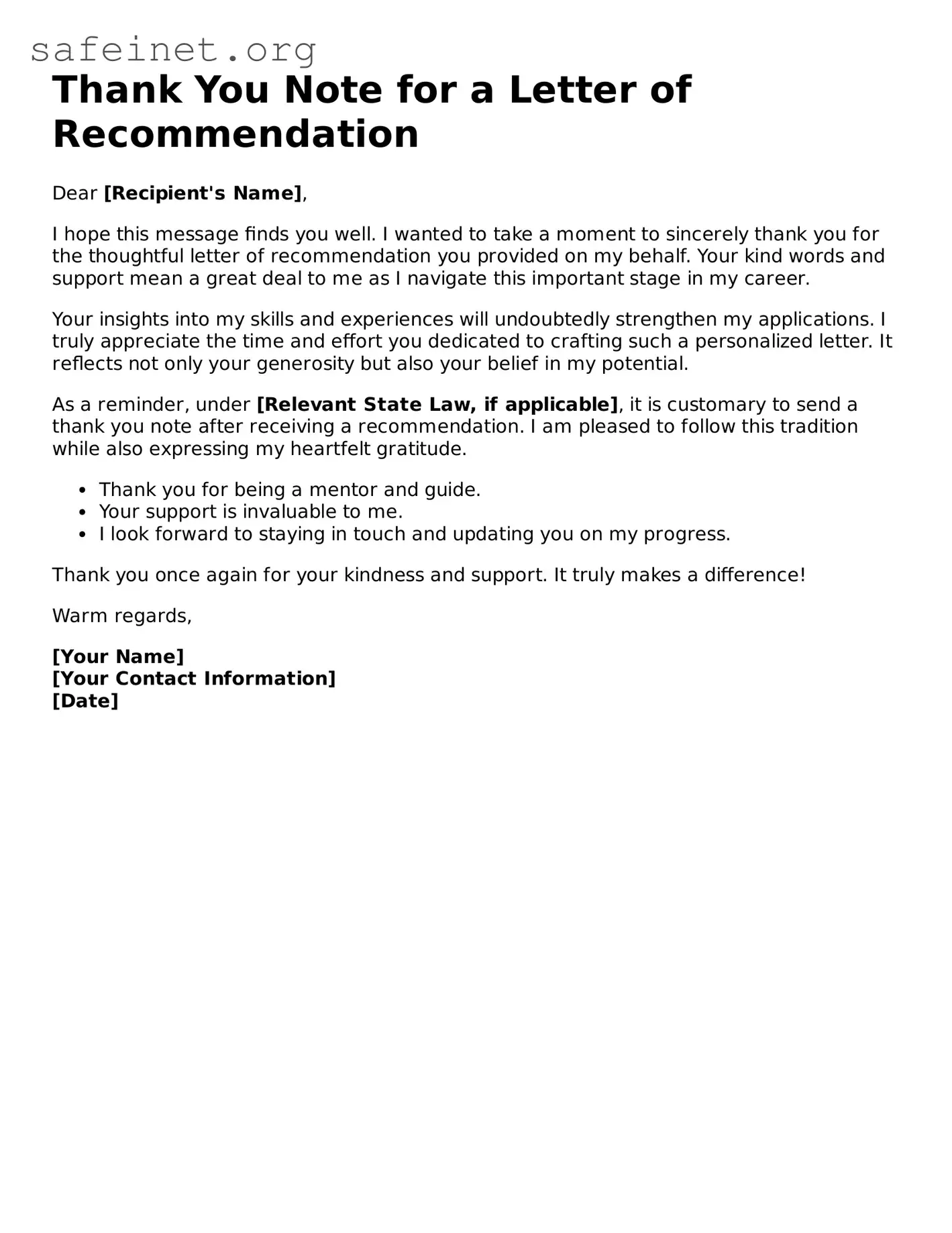What is the purpose of a Thank You Note for a Letter of Recommendation?
A Thank You Note serves as a way to express your gratitude to someone who has taken the time to write a letter of recommendation for you. It acknowledges their effort and support, showing that you value their contribution to your opportunities or goals.
When should I send the Thank You Note?
Please send your Thank You Note promptly after receiving the letter of recommendation. A good timeframe is within a week. This helps ensure that your appreciation is timely and fresh in the mind of the person who helped you.
What should I include in the Thank You Note?
Your note should include a sincere expression of gratitude, mention the specific opportunity for which they recommended you, and briefly highlight how their support has impacted you. A personal touch or anecdote can make your note more meaningful.
Should I send a handwritten note or an email?
While both options are acceptable, a handwritten note can feel more personal and impactful. If you have a close relationship with the recommender, consider handwriting your note. However, if time is of the essence, an email can suffice.
Is it necessary to follow up after sending the Thank You Note?
It is not strictly necessary, but a follow-up can be a nice gesture. If you make any progress related to the recommendation—like receiving an interview invitation or getting accepted—updating the recommender can show your appreciation further and keep them in the loop.
What if I didn't get the position, scholarship, or opportunity?
Even if you didn't achieve the outcome you hoped for, you should still express your gratitude. Acknowledging their support regardless of the result shows maturity and respect. You can mention that you appreciate their help and will keep them informed in the future.
Can I send a group Thank You Note if multiple people wrote recommendations?
It's best to send individual notes to each person who wrote a recommendation. Personalizing each note shows that you value each person's specific contribution and effort. It can make your appreciation feel more genuine and heartfelt.
How long should the Thank You Note be?
Your Thank You Note does not need to be long. A few sentences to a short paragraph is sufficient. Aim for clarity and sincerity over length. It's the thought and appreciation that truly matter.
